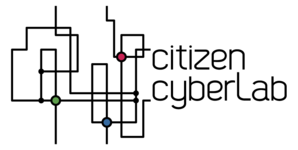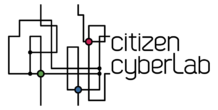ReCaptcha: Difference between revisions
Jump to navigation
Jump to search
No edit summary |
mNo edit summary |
||
| (6 intermediate revisions by 2 users not shown) | |||
| Line 11: | Line 11: | ||
|field_team_leadermm=Google | |field_team_leadermm=Google | ||
|field_participant_task_description=Scanned text is subjected to analysis by two different optical character recognition programs. Their respective outputs are then aligned with each other by standard string-matching algorithms and compared both to each other and to an English dictionary. Any word that is deciphered differently by both OCR programs or that is not in the English dictionary is marked as "suspicious" and converted into a CAPTCHA. The suspicious word is displayed, out of context, along with a control word already known. The system assumes that if the human types the control word correctly, then the response to the questionable word is accepted as probably valid. | |field_participant_task_description=Scanned text is subjected to analysis by two different optical character recognition programs. Their respective outputs are then aligned with each other by standard string-matching algorithms and compared both to each other and to an English dictionary. Any word that is deciphered differently by both OCR programs or that is not in the English dictionary is marked as "suspicious" and converted into a CAPTCHA. The suspicious word is displayed, out of context, along with a control word already known. The system assumes that if the human types the control word correctly, then the response to the questionable word is accepted as probably valid. | ||
([http://en.wikipedia.org/wiki/ReCAPTCHA Wikipedia], retrieved July 2013) | |||
[http://en.wikipedia.org/wiki/ReCAPTCHA Wikipedia], retrieved July 2013 | |||
|field_participant_retributions=none | |field_participant_retributions=none | ||
|field_Haklay_typology=crowdsourcing | |field_Haklay_typology=crowdsourcing | ||
| Line 37: | Line 36: | ||
|field_free_text=About 200 million CAPTCHAs are solved by humans around the world every day. In each case, roughly ten seconds of human time are being spent. Individually, that's not a lot of time, but in aggregate these little puzzles consume more than 150,000 hours of work each day. What if we could make positive use of this human effort? reCAPTCHA does exactly that by channeling the effort spent solving CAPTCHAs online into "reading" books. | |field_free_text=About 200 million CAPTCHAs are solved by humans around the world every day. In each case, roughly ten seconds of human time are being spent. Individually, that's not a lot of time, but in aggregate these little puzzles consume more than 150,000 hours of work each day. What if we could make positive use of this human effort? reCAPTCHA does exactly that by channeling the effort spent solving CAPTCHAs online into "reading" books. | ||
}} | }} | ||
free text test | free text test; | ||
{{Free text}} | {{Free text}} | ||
{{bibliography | {{bibliography | ||
| Line 58: | Line 57: | ||
|field_publication_type=other | |field_publication_type=other | ||
|field_additional_information=(At Google) | |field_additional_information=(At Google) | ||
}} | |||
{{bibliography | |||
|field_author=Luis von Ahn, Laura Dabbish | |||
|field_date=2005 | |||
|field_title=Labeling Images with a Computer Game | |||
|field_reference=Luis von Ahn and Laura Dabbish. Labeling Images with a Computer Game. ACM Conf. on Human Factors in Computing Systems, CHI 2004. pp 319-326. | |||
|field_link=http://www.cs.cmu.edu/~biglou/captcha_cacm.pdf | |||
|field_publication_type=Research article | |||
}} | }} | ||
Latest revision as of 09:42, 22 September 2015
free text test;
| BIBLIOGRAPHY |



